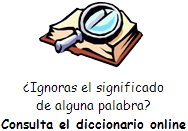Suppose you
are with a group of friends discussing the greatest inventions of the
20th century.
One friend says, “I think the computer was the best invention. There’s
no question about it.”
Another friend says, “I disagree! Have you forgotten that airplanes
exist?”
The first one responds with, “Actually, today’s airplanes could not
operate without computers.”
Knowing how to express your opinion in English is valuable whether you
are speaking or writing. In today’s program we will look at phrases you
can use to share your point of view.
Common phrases
Many phrases are suitable in everyday speech and
some types of writing, such as on blogs and personal websites. You have
probably already seen or used some of these phrases:
I think…
I believe…
I feel…
In my opinion… and
I would say…
For example, imagine you have your own food website. Today you’re
writing or talking about the world’s best street food. You might say:
In my opinion, Bangkok has the best street food.
Add strength
But suppose you wanted to make the statement stronger. You can do it by
adding an adverb or adjective. For example:
I really think…
I strongly believe…
I truly feel… or
In my honest opinion…
In addition, giving reasons for your opinion adds strength to the claim.
Let’s hear the street food statement again:
In my honest opinion, Bangkok has the best street food. I have never
seen more choices of what to eat – and everything I’ve tried has been
delicious!
Formal phrases
Next, let’s look at a few phrases that are more common in formal
situations. You might, for example, hear one of these at a business
meeting or a conference, or in a formal paper:
From my point of view…
From my perspective…
In my view… or
It seems to me that…
Here’s an example:
In my view, cruise ships should be banned. They produce massive amounts
of waste and use the dirtiest fuel in the world.
Though phrases like “In my view…” are usually more formal than ones like
“I think,” there is no rule for where or when you can use them. It’s
often a matter of personal choice.
Asking for opinions
So, imagine you’ve expressed yourself. But what about the opinion of
others? Often, when we express an opinion or suggestion, it’s a good
idea to ask other people for theirs. Phrases like these help show our
desire to hear from others:
What do you think of…?
What are your thoughts on…?
How do you feel about…? and
What’s your opinion on…?
You can use these questions in many kinds of situations. You might ask,
for instance:
What’s your opinion on Futbol Club Barcelona?
How do you feel about the new art director?
What are your thoughts on tonight’s activities?
Agreeing & disagreeing
Finally, let’s talk about agreeing and disagreeing.
Agreeing is the easy part. To show agreement, you can use short, clear
statements. Let’s suppose a friend says, “I think summer is way more fun
than winter!” You might show you agree by giving one of these responses:
So do I.
Me too.
Definitely.
I agree. or
I couldn’t agree more.
Note that, “agree” is a verb in English, so be careful not to say, “I am
agree” for the present tense verb.
You can also give reasons for your agreement:
I completely agree! I couldn’t live without beach days and outdoor
festivals.
But what if a person says something you disagree with?
With close friends or family, we can use informal, direct phrases to say
we disagree. You might say something like:
I disagree!
I don’t agree. or
Yeah, but…
Here’s how that sounds:
Yeah, but winter has just as many fun things to do. You just have to
dress warmly.
At other times, such as in discussions of more serious subjects, or in
professional situations, these phrases can be too direct.
Suppose people at work or school are sharing opinions about politics or
religious beliefs or something equally sensitive. For such times, your
language should be more polite.
So, instead of saying “I totally disagree!” or “You’re wrong!” you might
say one of these:
I’m not sure I agree with you on…
I’m sorry but I don’t agree. or
I’m afraid I disagree.
Another common way to disagree politely is to tell the person you
respect their opinion before sharing your own. Try phrases like these:
I see what you’re saying but…
You have a point there but… or
I understand where you’re coming from but…
Listen to a short exchange:
We’re paying sky-high rents and other costs. Our business would save a
lot of money by changing cities.
I see what you’re saying but, in my view, now is not the right time to
leave Los Angeles. The city offers too many incentives.
Final thoughts
You’ve probably observed that, in real life, many people state opinions
without using an opening phrase. They might just say, “Summer is better
than winter,” for example. Though this is acceptable with friends or
family or for lighter subjects, avoid doing this in professional
situations or for heavier subjects.
Wow, that was a lot of information, wasn’t it!? The good news is that
you don’t need to memorize it. In my opinion, you should choose only a
few phrases that feel most natural to you and practice them whenever you
can. |
 Sugerencias:
Sugerencias:![]() ). Utiliza el botón derecho del ratón y "guardar enlace" para
descargar el fichero a tu PC, tablet, Smartphone, etc.
). Utiliza el botón derecho del ratón y "guardar enlace" para
descargar el fichero a tu PC, tablet, Smartphone, etc.
![]() Escucha el audio
Escucha el audio
![]() ¿Quieres recibir en tu e-mail gratis y
periódicamente ejercicios, programas gratuitos, explicaciones y otros recursos
para mantener tu inglés sin esfuerzo? Apúntate a nuestro
cuaderno mensual de inglés.
¿Quieres recibir en tu e-mail gratis y
periódicamente ejercicios, programas gratuitos, explicaciones y otros recursos
para mantener tu inglés sin esfuerzo? Apúntate a nuestro
cuaderno mensual de inglés.




